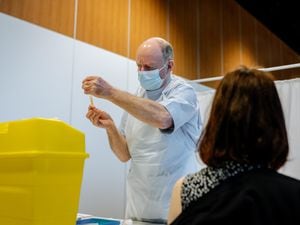Shropshire college expands medical team
Shropshire’s international school has expanded its medical team to allow students much quicker access to treatment – and free up GP appointments for more serious illnesses.

Acton Burnell-based Concord College has now added an on-site nurse prescriber to its nine strong medical team as part of promoting partnership working with Cressage and Much Wenlock Surgery.
The move has been welcomed by Dr Jennie Bailey, a GP senior partner at the medical practice, who is also the school medical officer for Concord.
Newly appointed head nurse Pamela Tomlin said: “We are currently working on the practicalities of setting up the partnership and are hopeful it will be up and running this term.
“Perhaps most notably Concord College will soon be able to prescribe medication without the need for GP consultation as I am an independent nurse prescriber.
“In addition to allowing students much quicker access to treatment, it will also importantly prevent any conditions from becoming worse.
“This will vastly save a huge amount of GP time, resources and costs as well as freeing up appointments and services of GPs who are under strain along with providing timely protection to students.
“The college plans to continue improving its medical services and ensuring its staff are also up to date with training and personal development.”
Profile
The medical team at Concord College increased this month to nine which now incorporates two paediatric nurses, three adult nurses, one mental health nurse, two health care assistants and an administrative assistant to enable the medical team to fully focus on quality of care and expansion of seamless services to students.
Miss Tomlin said: “More widely across the college we have implemented 10 homely remedies in all boarding residences to ensure timely treatment of minor medical conditions 24 hours a day.
“These include paracetamol, buttercup syrup, Cetirizine, Dioralyte, throat lozenges, Sudafed decongestant, strepsils, Antisan cream, Savlon cream and Olbas oil.
“Staff have to undertake a medicines administration course before they are able to give any medicine to students.
“We have updated many policies including procedures for care of boarders, medication from abroad, infection control and anaphylaxis. We have written a new diabetes, epilepsy and head injury policy.
“We have introduced a national immunisation programme including flu vaccinations for nearly 600 students. We also want to increase the profile of National Health awareness days and provide worthwhile literature to students and staff.”
She added: “At the same time, the medical team is planning for the future and specialist clinics will hopefully include dermatology, health and lifestyle, sexual health, asthma and various types of mental health as part of our long term conditions policy.”





